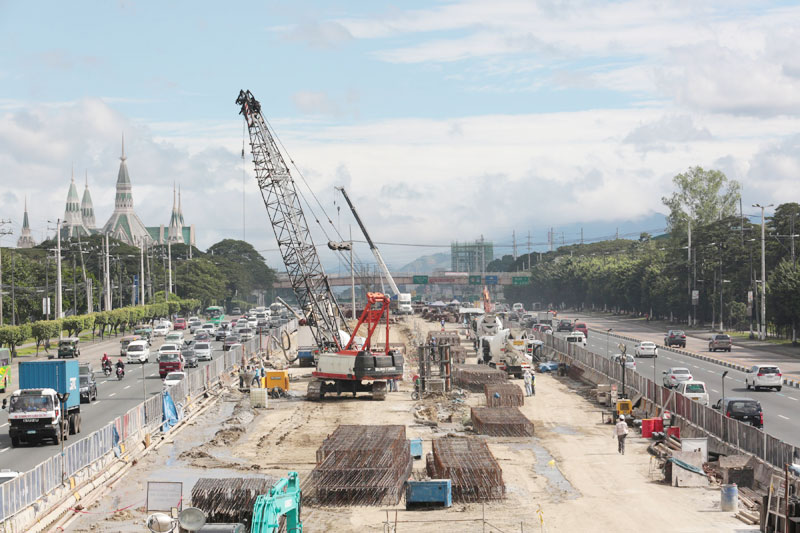Government overspent on infra in 2017

MANILA, Philippines — Driven by the Duterte administration’s massive infrastructure program, the government spent P568.8 billion for infrastructure projects in 2017, exceeding the target for the year by 3.5 percent, the Department of Budget and Management (DBM) reported yesterday.
In a press briefing, Budget Secretary Benjamin Diokno said the government’s infrastructure disbursements last year were 15 percent higher than the P493 billion spent on infrastructure and other capital outlays in 2016.
For December 2017 alone, capital outlays rose 23 percent to P82.3 billion from the same month the previous year.
“The upward trend in capital outlays is proof of the rollout of the Duterte Administration’s ambitious infrastructure program,” Diokno said.
In a separate statement, the DBM attributed the increase in infrastructure spending last year to the implementation of road projects under the Department of Public Works and Highways, the Armed Forces of the Philippines (AFP) Modernization Program, and other capital outlay projects, such as the repair and rehabilitation of school facilities.
The agency also cited the regular submission of progress billings from contractors, a faster and simplified approval process for plans and programs, strict implementation of project planning, monitoring and scheduling.
Infrastructure and capital outlays form part of the government’s total expenditures, which grew 11 percent to P2.82 trillion last year from P2.55 trillion in 2016.
This was, however, three percent lower than the P2.91 trillion disbursement program for last year.
Despite the decline, Diokno said disbursements in 2017 improved remarkably, with underspending trimmed as compared to previous years.
Underspending was recorded at 3.6 percent in 2016, 12.8 percent in 2015 and 13.3 percent in 2014, according to DBM data.
“This is a remarkable feat given the size of our budget and issues of underspending in the past,” Diokno said.
Aside from infrastructure, personnel services, subsidies, allocations and capital transfers to local government units (LGUs) also drove the growth in government disbursements last year, the DBM said.
Personnel services rose 12 percent to P808.4 billion from the previous year, mainly due to the creation and filing of positions at the Department of Education and state universities and colleges, the Department of Health, and the Philippine National Police.
Subsidies to government-owned and -controlled corporations (GOCCs) also rose to P131.1 billion, mainly as support for housing programs, irrigation projects and health insurance, while allocations and capital transfer to LGUs amounted to P530.1 billion.
“Moving forward, we expect further improvement in government spending as the bureaucracy shifts to annual cash-based budgeting starting fiscal year 2019,” Diokno said.
- Latest
- Trending
































